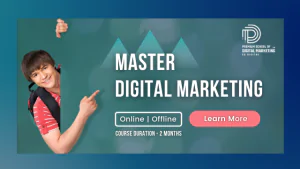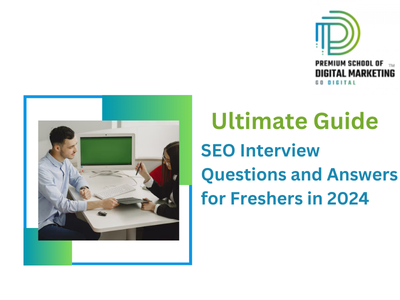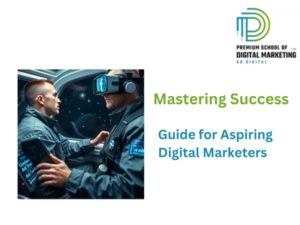Table of Contents
Introduction
Preparing for an SEO interview can be overwhelming, especially with the wide range of concepts and techniques to master. But don’t worry! We’ve compiled simple, clear answers to the most commonly asked SEO interview questions. Whether you’re a beginner or brushing up your knowledge, this guide will help you confidently tackle any SEO interview.
Looking to upgrade your SEO skills or learn more about digital marketing? Check out our digital marketing courses in Vashi and digital marketing courses in Pune for expert-led training and hands-on experience.

Basic SEO Concepts
1. What is SEO, and why is it important?
SEO (Search Engine Optimization) is the process of optimizing a website to rank higher on search engines like Google. It’s important because higher rankings bring more visitors to your website, which can lead to more customers.
2. What are the different types of SEO?
– On-page SEO: Optimizing individual pages (like keywords in content).
– Off-page SEO: Building external links to your website.
– Technical SEO: Improving website speed, structure, and security.
3. What is a search engine, and how does it work?
A search engine (like Google) is a tool that finds information on the internet. It works by crawling and indexing websites, then ranking them based on relevance to a user’s search.
4. What is the difference between organic and paid results?
– Organic results: Free listings that rank based on SEO.
– Paid results**: Ads that appear at the top of search results, marked as “Ad.”
5. What are keywords, and why are they important in SEO?
Keywords are words or phrases people use to search online. They’re important because they help search engines understand what your content is about, connecting it with relevant searches.
6. What is keyword density, and what is the ideal keyword density?
Keyword density is how often a keyword appears in content. Ideally, keep it between 1-2% to avoid keyword stuffing and make the content natural.

Keyword Research and Optimization
7. How would you conduct keyword research?
Start by listing relevant topics, then use tools like Google Keyword Planner to find specific keywords with high search volume but low competition.
8. What tools do you use for keyword research?
Popular tools include Google Keyword Planner, Ahrefs, SEMrush, and Ubersuggest.
9. What is keyword stuffing, and why should it be avoided?
Keyword stuffing is overusing keywords in content. It’s bad because it makes content unnatural and can lead to penalties from search engines.
10. What is long-tail vs. short-tail keyword targeting?
– Short-tail keywords: Shorter, broader keywords (e.g., “shoes”).
– Long-tail keywords: More specific keywords (e.g., “comfortable running shoes for women”) that attract targeted visitors.
11. How would you optimize a webpage for a specific keyword?
Use the keyword in the title, URL, meta description, headings, and naturally in the content.
On-Page SEO
12. What is on-page SEO, and why is it important?
On-page SEO involves optimizing content and HTML tags to improve rankings. It’s important because it helps search engines understand your page.
13. What are meta tags, and why are they important?
Meta tags provide information to search engines about your page. The title tag and meta description are crucial for rankings and click-through rates.
14. What is a title tag, and how does it affect SEO?
The title tag is the page title displayed in search results. It should include the main keyword and attract clicks.
15. What is an alt tag, and why is it important for images?
Alt tags describe images for search engines and assist visually impaired users. They can help images rank in search results.
16. How does URL structure impact SEO?
Clear, short URLs with keywords help search engines understand the page content and improve user experience.
17. What are heading tags, and how do they affect SEO?
Heading tags (H1, H2, etc.) structure content and highlight important sections. They improve readability and signal the content’s main topics to search engines.
Technical SEO
18. What is technical SEO, and why is it important?
Technical SEO improves a website’s structure, speed, and security. It’s essential because it helps search engines crawl and index your site easily
19. What is a robots.txt file, and how does it work?
A robots.txt file tells search engines which pages they should or shouldn’t crawl on your site.
20. What is an XML sitemap, and why is it necessary?
An XML sitemap lists all pages of a website, helping search engines find and index content faster.
21. How does page speed impact SEO?
Slow-loading pages lead to high bounce rates. Search engines favor faster pages as they provide a better user experience.
22. What is canonicalization, and why is it important?
Canonicalization prevents duplicate content issues by telling search engines which version of a page to index.
23. What is a 301 redirect, and how does it affect SEO?
A 301 redirect permanently moves one URL to another, transferring SEO value to the new page.
24. What are breadcrumbs, and how do they help with SEO?
Breadcrumbs show the path to a page within a site. They improve navigation, user experience, and can enhance search results appearance.
Off-Page SEO
25. What is off-page SEO, and why is it important?
Off-page SEO includes actions outside your website (like link building) that impact rankings. It signals to search engines that your site is reputable.
26. What is link building, and why is it important for SEO?
Link building is getting other sites to link to yours. Quality links act as votes of trust and improve rankings.
27. What are backlinks, and how do they impact SEO?
Backlinks are links from other websites. High-quality backlinks improve authority and rankings.
28. What are the different types of backlinks?
– Do-follow: Pass SEO value.
– No-follow: Do not pass SEO value.
– Natural links: Earned organically.
– Manual links: Acquired through outreach.
29. What is anchor text, and how does it impact SEO?
Anchor text is the clickable text in a link. Relevant, keyword-rich anchor text boosts SEO when linking to other pages.
Content SEO
30. How does content quality affect SEO?
Quality content keeps users engaged, answers their queries, and is more likely to get shared and linked, all of which improve SEO.
31. What is duplicate content, and how does it impact SEO?
Duplicate content is identical content on multiple pages. It confuses search engines, and they may not rank any of the pages well.
32. What is keyword cannibalization?
Keyword cannibalization happens when multiple pages target the same keyword, leading to competition among your own pages.
33.What is content freshness, and why is it important?
Fresh content attracts users and can improve rankings, especially for topics that change over time.
Analytical and Technical Knowledge
34. How do you measure SEO success?
Track metrics like organic traffic, keyword rankings, conversion rate, and bounce rate.
35. What are Google Analytics and Google Search Console?
-Google Analytics**: Tracks user behavior on your site.
– Google Search Console**: Monitors site performance in search and identifies issues.
36. What is bounce rate, and how does it affect SEO?
Bounce rate is the percentage of visitors who leave without interacting. High bounce rates may indicate poor user experience.
37. What is the difference between sessions and pageviews?
– Sessions: Individual visits.
-Pageviews: Total views of all pages within those visits.
Latest SEO Trends and Updates
38.What do you know about Google’s recent algorithm updates?
Recent updates focus on helpful content, user experience, and combatting spam. Keeping up with these helps adapt SEO strategies
39.What is E-A-T, and why is it important?
E-A-T (Expertise, Authoritativeness, Trustworthiness) is important because Google uses it to evaluate content quality, especially in sensitive areas.
40.What is mobile-first indexing?
Mobile-first indexing means Google primarily uses the mobile version of your site to rank pages. Mobile-friendly design is essential for good rankings.





